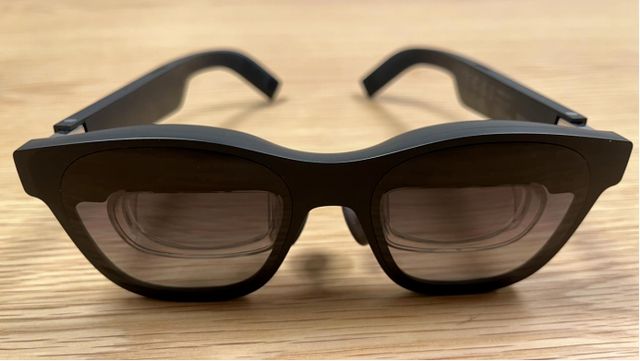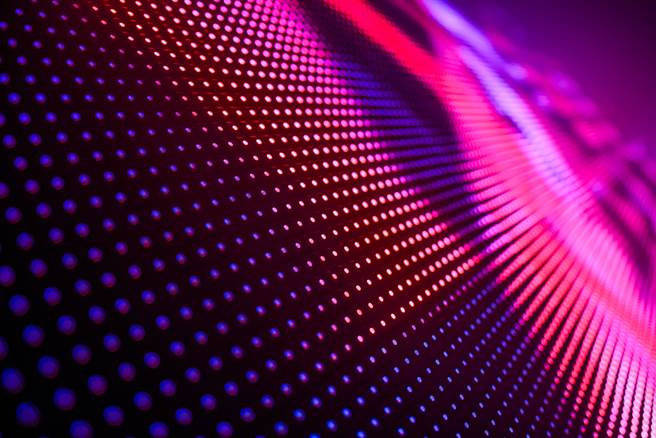XREAL Closes New Financing Valued at Over $1 Billion, AR Glasses Annual Capacity to Reach 2 Million Units
Time: Feb 02, 2024Views:
Recently XREAL, an AR glasses brand, announced that the company has completed a new round of $60 million in strategic financing. This round of financing will be used for product research and development and the expansion of the optical engine production base, which means that XREAL can further increase the production capacity of AR glasses, which is expected to reach a production scale of 2 million units in 2025, in order to help XREAL enhance the lock on the industry leadership in the upcoming era of spatial computing.
The injection of this round of financing brings XREAL's total financing to date to $300 million, and XREAL's current valuation has exceeded $1 billion. Up to now, XREAL has been supported by investors including renowned financial investors as well as upstream and downstream renowned partners such as Alibaba, Racer, Azure Capital, Yunfeng Fund, Sequoia, Gao Tiling, Hongtai, Jinpu, CICC Capital, CPE Yuanfeng, Shunwei, QiYi, CCTV, Lightwing. Aqiyi, CRE, Everbright Holdings and other favorites.
XREAL was founded in 2017 in Beijing, China by former employees from Magic Leap , Google and AMD. Rooted in China and with a global focus, XREAL has entered China, the United States, Japan, South Korea, the United Kingdom, Spain, Germany and other countries and markets, and is now the world's leading consumer-grade AR glasses R & D, design and manufacturing company.

Starting from the launch of the initial generation Nreal Light in 2019 to the global launch of the consumer AR glasses XREAL Air in 2022, the XREAL brand has continued to evolve and grow rapidly into a leader in the design and manufacturing of consumer AR devices. Now XREAL Air series products have become the world's best-selling AR glasses. XREAL Air2 has a screen throw of 130 inches at an equivalent of 4 meters, and with Beam it can achieve a screen throw of 330 inches at 10 meters, providing people with a unique experience of a virtual screen in a variety of everyday scenarios.
After Apple launched its spatial computing platform, XREAL quickly followed suit and proposed the concept of "Spatial Display" for the first time, popularizing the product definition of connecting AR glasses with existing computing devices. Last October, XREAL Air 2 and Air 2 Pro were launched globally, equipped with the latest Sony Micro-OLED displays, just like Apple, and upgraded comprehensively on the basis of the previous generation of products, bringing users a lighter and more comfortable experience.
The XREAL Air 2 series glasses have excellent display capabilities with higher brightness and color reproduction, higher pixel density and ultra-high contrast ratio, and for the first time, an upgraded audio system with electrochromic technology for all-weather, all-scene immersive viewing. xreal Air series glasses are compatible with a wide range of mainstream gaming and streaming entertainment devices, including Microsoft Xbox, Sony PlayStation, Sony PlayStation, Nintendo, and Sony Xbox, Sony PlayStation, Nintendo Switch, Steam Deck, ASUS ROG Ally, iOS and Android devices, Windows PCs and Macs, and is available now in the U.S., Europe and Asia, with more countries coming in 2024.
At the recent International CES 2024 in Las Vegas, XREAL also unveiled the XREAL Air 2 Ultra, a next-generation spatial computing platform for developers, which XREAL claims delivers spatial computing power comparable to Apple's Vision Pro and Meta Quest 3 XREAL was joined by Qualcomm, BMW, and Azure at the show, and also demonstrated its revolutionary holographic conferencing with Forma Vision.
Different from the closed design of Apple's Apple Vision Pro, the domestic AR glasses companies, mainly XREAL Air2 and Thunderbird Air2, have adopted the open and lightweight glasses design, with the intention to cover the whole scene of life and work more closely, unlike Apple's Apple Vision Pro, which focuses more on the construction and migration of the next-generation computing platform, mainly to replace the existing tablet PCs and laptops, and to replace the existing tablet PCs and laptops. The main purpose is to replace the existing tablet PCs, laptops and desktop PCs in the field of life, work and entertainment.
In addition, the Apple Vision Pro can achieve a horizontal FOV of about 110° and 35 PPD (angular resolution). The AR glasses products of XREAL Air2 and Thunderbird Air2 maintain the same high level of field of view (FOV), angular resolution (PPD), and color gamut, which are 46° FOV, 49 PPD, and 108% color gamut, respectively.
PPD (Pixels Per Degree) is the average number of pixels per 1 ° angle within the field of view, the larger the PPD value, the clearer and more natural the screen display. Under normal vision, the human eye's resolution limit is about 50-60PPD.
The AR glasses products of XREAL Air2 and Thunderbird Air2 perform significantly worse than Apple Vision Pro in terms of field of view (FOV), and the internal screen of Apple Vision Pro is equipped with two 1.42-inch Sony Micro OLED displays. According to Apple's official data, this set of Micro OLED displays has a pixel density of about 3,400 PPI, with 23 million + pixels, and can provide monocular 4K-level resolution. The resolution of the two AR glasses is 720P, and only the TV mode resolution can also be upgraded to 1080P.
Of course the biggest difference between the two is still, Apple Vision Pro can independently replace the traditional computer operating system to complete all the work, while the two AR glasses is only mainly as an alternative to the role of the Pnen smart display, the main focus is to cast the screen application.
According to media reports Apple has sold more than 200,000 Vision Pro headsets in the United States since the opening of the Vision Pro headset pre-order on January 19, gaining $699.8 million (currently about $5.025 billion) in pre-order revenue.

In total, all AR glasses in the market have still sold less than 1.5 million units in the market, which is also about 5 billion RMB or less at an estimated unit price of about 3,000 RMB for its most expensive consumer-grade product.
It is expected that after reaching a production scale of 2 million units in 2025, XREAL's annual revenue will also be expected to reach more than 5 billion.
At present, in addition to Apple, the industry has no other available spatial computing platform software system, XREAL Air2 and Thunderbird Air2 as a representative of the AR glasses products, a short period of time through the concept of spatial display, the first non-Apple camp to try to the concept of spatial computing field of perception and innovation, the significance of the same extraordinary, of course, the future of the progress of the space is also very huge.
recommend
Feb 03, 2024
Recently, overseas institutions have downgraded Apples rating. For a time, Apple from being bearish in mainland China du...
Hot








